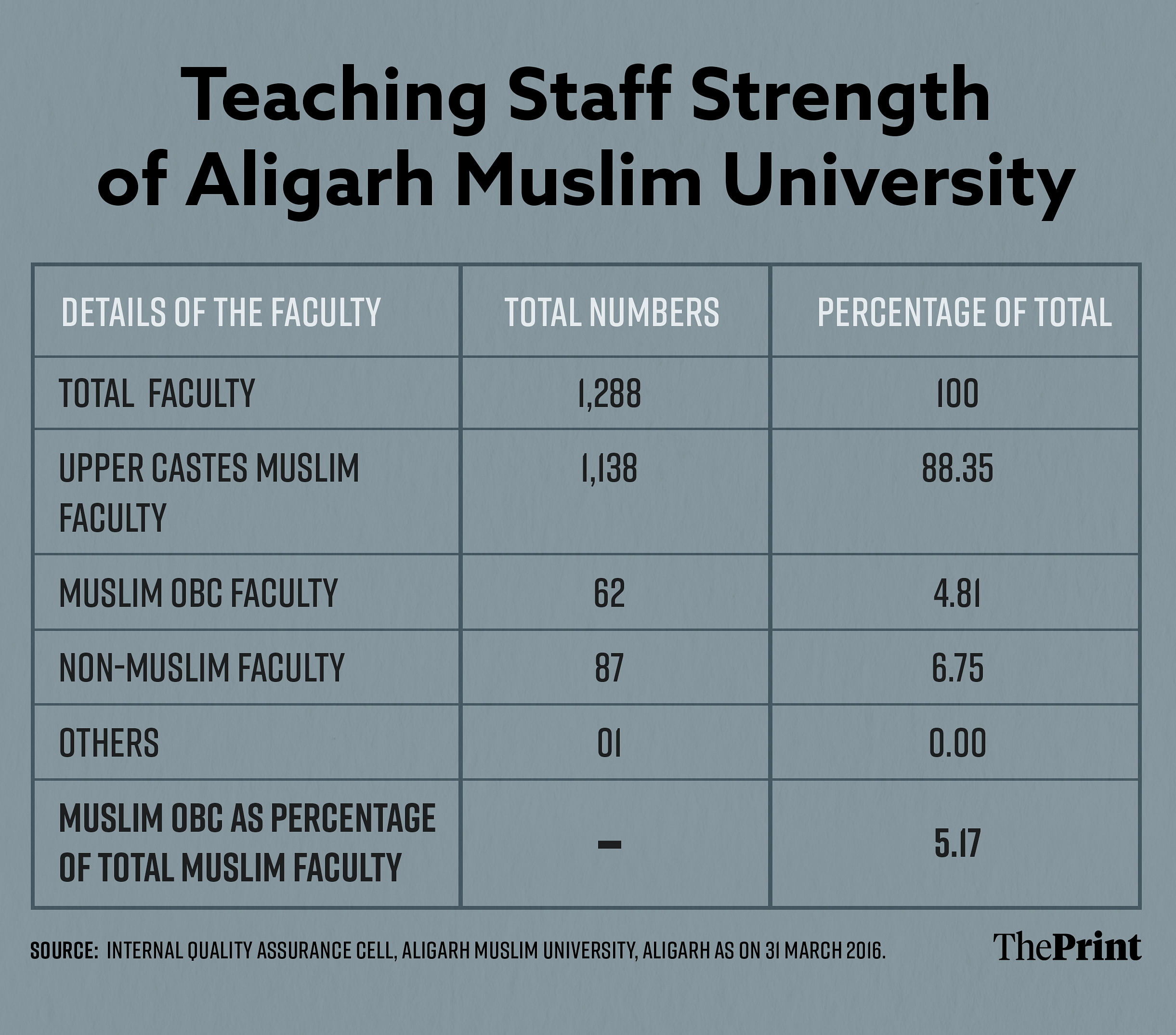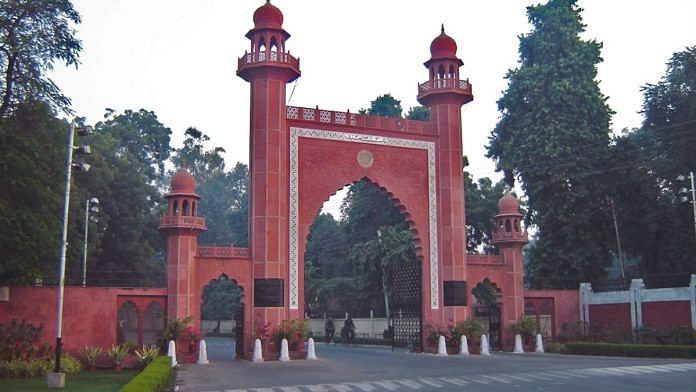Aligarh Muslim University has once again grabbed headlines with the ongoing selection process for its vice-chancellor. Pasmanda activists claim that the process is biased and discriminatory against ‘lower-caste’ Muslims and women. The argument is that the committee responsible for choosing the candidate, which comprises the executive council and AMU court, is dominated by Ashraafs or ‘upper-caste’ Muslims. It also allegedly favours candidates based on Ashraaf interests, perpetuating a system that overlooks the concerns of the marginalised.
This isn’t the first time the university has faced such allegations. Delve into the annals of history, and you’ll uncover a legacy steeped in discrimination. The bedrock of AMU was never laid in the fertile soil of inclusivity. Instead, it seems to have germinated from the seeds of securing the interests of feudal Muslims, a narrative woven into the very fabric of its founder Syed Ahmed Khan’s actions, speeches, and endeavours.
Khan looms large in Indian history, celebrated as a standout Muslim intellectual, reformer, educationist, and Islamic modernist. While he played a visionary role in founding the Muhammadan Anglo-Oriental College, which later evolved into AMU, he also struck a disconcerting alignment with British colonial rule. Rather than extending genuine concern for the broader Muslim community, his focus was fixed on the welfare of Ashraaf Muslims. To shield elite Muslims from potential repercussions after the 1857 revolt, Khan authored Asbab-e Baghawat-e Hind (The Causes of the Indian Revolt), unjustly pinning blame on the ‘lower’ caste Ansaris, who he called badzat julahas or the primary instigators of the agitation. When the founder himself harbours such a contemptuous view of Pasmanda Muslims, expecting fairness within such an institution is a naive, misplaced hope.
Also read: BJP Pasmanda outreach biggest disruption since Mandal. Desire for quota rising among Muslims
A deliberate effort
To serve the interests of the elite, Khan also implemented a discriminatory admission system that mandated the provision of a character certificate, explicitly stating the individual’s affiliation with the Ashraaf community. Scholar Abu Khalid Bin Saidi noted: “It is clear from most of the writings of the late Syed Ahmad Khan that he established the Madrasat ul-Ulum at Aligarh in order to rehabilitate the ashraf class in the wake of the destruction wrought by the Revolt. That is why till 1947 the character certificate of students graduating from [the college] clearly mentioned: ‘This person comes from a noble (sharif) family of his district’.”
Therefore, it’s hardly surprising to see a conspicuous absence of Pasmanda Muslims in AMU’s staff and authoritative positions, even after 76 years of Independence. Data obtained through an RTI and posted by the Pasmanda activist Faiyaz Ahmed Fyzie pulls back the curtains on the issue. In the 2017-18 session, among the 5,844 members of the non-teaching staff, only 1,934 belonged to the Other Backward Class (OBC), Scheduled Class (SC), and Scheduled Tribe (ST) categories.
This disparity intensifies when we turn our gaze to the teaching staff, where a mere 70 individuals identify as Pasmanda out of a total of 1,222 — a meagre 5 per cent representation.

The 2016 data, published by the Internal Quality Assurance Cell at AMU, shows the same pattern. Within the faculty, the influence of the Ashraaf community is disproportionately pronounced, comprising a staggering 88.35 per cent. Pasmanda Muslims, who constitute 85 per cent of Indian Muslims, only have a meagre 4.8 per cent representation in AMU’s teaching staff.
Also read: Modi’s quota Bill must make space for Pasmanda Muslim women like me. We need representation
Acknowledgement is the first step
The discrimination faced by Pasmanda Muslims exists not only in cold data and facts but extends to lived experiences on campus. This is often overlooked by the mainstream media — the challenges and hardships that Pasmandas encounter remain largely unspoken. Pasmanda Muslim students face isolation. Professors would assume that students from lower-caste communities are not really serious about education, wrote a former AMU student.
The AMU Act 1981, confers upon the university the status of a minority institution. While this has been under debate, institutions with minority status are exempted by Article 15 (5) from adhering to constitutional reservations. So while Pasmanda Muslims can avail reservations in BHU and JNU under OBC and ST categories, they can’t in AMU. This discrepancy prompts Pasmanda intellectuals to assert that India’s minority space seems to cater predominantly to the Ashraaf community.
The irony unfolds when numerous Muslim intellectuals passionately denounce casteism within Hindu society, yet fail to shed light on the absence of reservation schemes for the upliftment of Pasmanda Muslims. It underscores a poignant contradiction — a disparity within the efforts aimed to bring about inclusivity and social justice.
Another overlooked yet crucial aspect of the issue is the absence of movements and political activism against discrimination within Indian minority spaces, including AMU. Despite being a prestigious university with a rich history of nurturing thinkers, the campus lacks the fervour of debate, discussion, and movements akin to those witnessed in other esteemed educational institutions.
The legacy of oppression against Pasmanda Muslims within AMU is undeniable, and it beckons us to question why there isn’t more vocal advocacy for social justice and inclusivity within its hallowed halls. The time has come to confront this reality, acknowledging the need for substantial changes, starting from the university and rippling outwards into society. To embark on this path, we must first acknowledge the legacy of discrimination towards Pasmanda Muslims in AMU.
Amana Begam Ansari is a columnist and TV news panelist. She runs a weekly YouTube show called ‘India This Week by Amana and Khalid’. She tweets @Amana_Ansari. Views are personal.
(Edited by Theres Sudeep)



